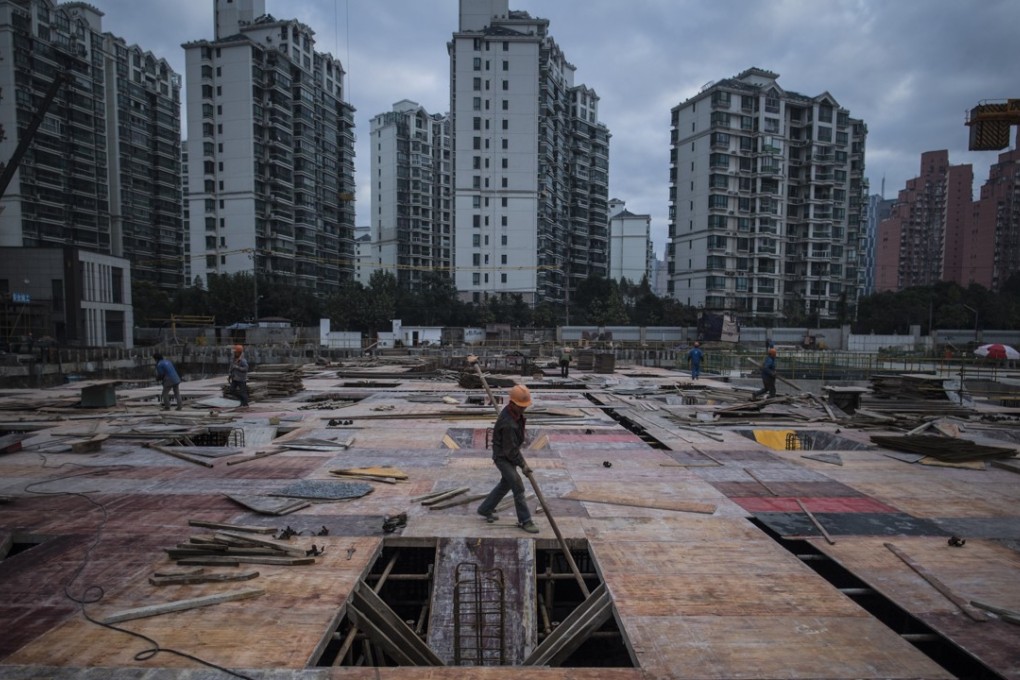Chinese developers buy back their own shares to prop up prices as business prospects dim
Eight property firms have spent US$560 million on their own stock in July, but investors remain downbeat over the outlook for the industry as Beijing cracks down

Chinese property developers listed in Hong Kong have stepped up buying of their own shares this month as their business prospects dim, but fund managers and analysts remain sceptical that the purchases could translate into a sustained rebound in the Hong Kong market.
Eight mainland-based developers spent a total of HK$4.4 billion (US$560.7 million) on buying their own shares between July 2 and July 23, representing 43 per cent of the overall total between those dates. China Evergrande alone spent over HK$3 billion, repurchasing so many shares that it is at risk of falling short of the minimum free float required by the stock exchange. Others also buying included Shimao Property Holdings, Logan Property Holdings and China Jinmao Holdings.
Investor confidence in Chinese developers has remained subdued, especially after 30 mainland cities implemented tighter property regulations last month. The real estate sector may already be showing signs of cooling, with property sales by floor area rising only 4.5 per cent in June from a year ago, down from an 8 per cent gain in May, Reuters calculations based on official data showed.
“Chinese developers still have a lot of borrowings so their growth will continue to slow. We are not optimistic even if there is going to be some rebound in stock prices after the sharp declines,” said Ruby Wong, assistant vice-president for investment strategy at Haitong International Securities.
Others noted that although Beijing has signalled that it was shifting toward policies that would support the economy, the property market was not included, with restrictions unlikely to be loosened.
